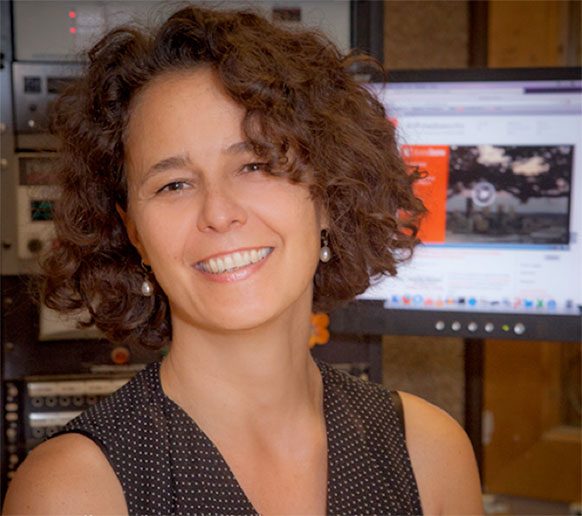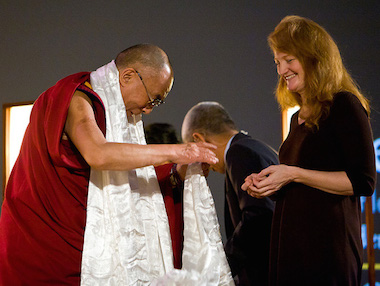Tag: Radio programs
New public radio show convenes diverse panel for different take on events
A new show from the African-American Public Radio Consortium examines issues through the views of artists, activists, academics and journalists — all ...Working group nears standard for audio levels in PRSS content
Members of an NPR working group aiming to standardize levels of audio content delivered via the Public Radio Satellite System believe they ...Eclectic24 goes from online to on-air in Santa Barbara
An FM signal in Santa Barbara, Calif., recently acquired by KCRW, became the first broadcast home this week for Eclectic24, a previously ...Science Friday producer settles with government over alleged misuse of NSF funds
A for-profit corporation involved with public radio’s weekly Science Friday show has settled with the U.S. government over alleged misuse of a National Science Foundation ...In Tampa, college broadcasters find advantages in pubradio affiliation
The University of South Florida’s student-run radio station has forged a three-year partnership with Tampa’s WUSF Public Media to broadcast its programming ...Spoken-word contest gives students the stage to discuss the dropout crisis
American Graduate and Youth Speaks, a nonprofit that focuses on empowering youth through creativity, hope to include more young people in conversations ...Chicago’s WFMT picks up distribution of Carnegie Hall Live
PORTLAND, Ore. — Chicago’s WFMT announced Wednesday a deal with New York–based WQXR to distribute the 2014 season of Carnegie Hall Live. Entering its ...PRPD, Day Two: NPR, stations prepare for debut of revised newsmag clocks
PORTLAND, Ore. — This week’s Public Radio Programming Conference is giving attendees a chance to prepare for Nov. 17, the day when ...PRPD, Day One: In keynote, Mohn issues promotion challenge
PORTLAND, Ore. — Addressing the nearly 500 attendees of the Public Radio Program Directors conference, NPR CEO Jarl Mohn reassured attendees Tuesday ...With Localore expansion, AIR’s Schardt looks to spread culture of R&D, mission of inclusion
The Association of Independents in Radio is preparing to roll out its next iterations of Localore, the innovation initiative that paired indie ...Naysayers be damned, public radio’s On Being thrives as ‘social enterprise’
It’s been a long journey for a show that some doubted could survive on public radio.The time Joan Rivers didn’t become an NPR host
With the death of Joan Rivers, Jay Kernis, former senior v.p. for programming at NPR, shared this remembrance of Rivers on his ...NPR’s Ellen McDonnell, executive editor for news programming, will retire after almost 35 years
NPR’s news division is seeing the exit of another longtime executive with today’s announcement that Executive Editor for News Programming Ellen McDonnell ...Merged newsroom boosts St. Louis Public Radio’s response to tumult in Ferguson
The aftermath of the shooting of Michael Brown in Ferguson, Mo., proved to be a critical test for the public media newsroom.Report: SiriusXM to end The Bob Edwards Show
SiriusXM Radio will wind down The Bob Edwards Show next month, according to a Politico article published Friday. Citing unnamed sources, Politico reported that ...





